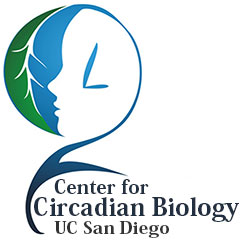External Advisory Board
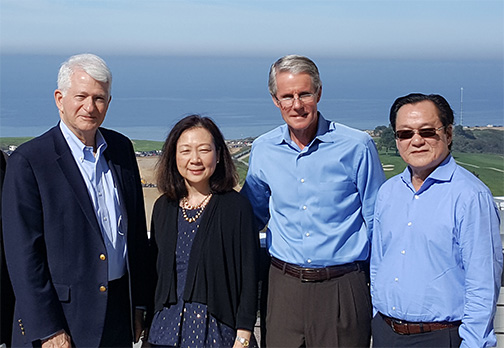
Left to Right: Gene Block, Phyllis Zee, David White, Joseph Takahashi, Not pictured: Brookie Best, Joan Heller Brown, Horacio de la Iglesia, Wayne Drevets, Alison Moore, Tushar Patel, and Michael Young.
-
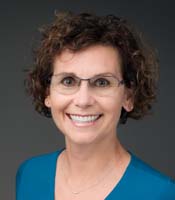
Brookie M. Best
Dean of UC San Diego Skaggs School of Pharmacy and Pharmaceutical Sciences (SSPPS) and Professor of Clinical Pharmacy and Pediatrics in SSPPS and in the UC San Diego School of Medicine-Rady Children’s Hospital San Diego
Dr. Best specializes in pharmacokinetics – the processes by which a drug is absorbed, distributed, metabolized and eliminated by the body. Her primary expertise is in perinatal and pediatric clinical pharmacology research. Her research efforts have focused on studying anti-HIV drugs in pregnancy, lactation, infants, children, adolescents, and non-pregnant adults. She also studies drugs used to treat Kawasaki disease, the leading cause of acquired heart disease in children.
-
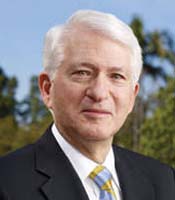
Gene Block
Chancellor of UCLA and Professor of Psychiatry and Biobehavioral Sciences in the David Geffen School of Medicine and in Physiological Science in the College of Letters and Science, UCLA
Chancellor Block's research has focused on the neurobiology of circadian rhythms, specifically the neural mechanisms by which organisms adjust sleep and wakefulness to the day and night cycle. Most recently, he has examined the effects of aging on the biological clock. From 1991 to 2002, he directed the National Science Foundation's Science and Technology Center in Biological Timing at the University of Virginia.
-
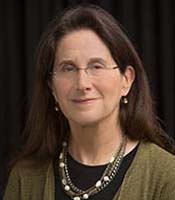
Joan Heller Brown
Distinguished Professor and Chair of Pharmacology, UC San Diego, School of Medicine
Dr. Heller Brown has chaired UCSD’s Department of Pharmacology since 2002. Her seminal early papers on G-protein coupled receptor (GPCR) signaling demonstrated that dopamine receptors are the target of antipsychotic drugs, that muscarinic receptors inhibit adenylate cyclase, and that activation of phospholipase C and CaM kinase II lead to cardiac hypertrophy. Her laboratory is currently focused on mechanisms underlying the regulation of cell growth, survival and inflammation by GPCRs, specifically the signal transduction pathways by which specific subtypes of GPCRs cause chronic changes in cellular responses that contribute to disease progression.
-
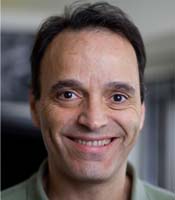
Horacio de la Iglesia
Professor Department of Biology, Director Graduate Program in Neuroscience, University of Washington
Our laboratory is interested in understanding how neural systems encode time and generate rhythmic physiological and behavioral outputs to adapt to the temporal structure of the environment. We use a comparative approach that capitalizes on animal models that range from the laboratory mouse to humans, and using approaches that include molecular biology, mouse transgenics, endocrinology, and both laboratory and field behavioral studies.
-
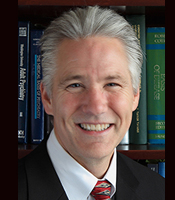
Wayne Drevets
Scientific Vice President and Disease Area Leader in Mood Disorders in the Neuroscience Therapeutic Area at Janssen Research & Development, LLC
Dr. Drevets is a scientist at Janssen Research & Development, LLC, one of the Janssen Pharmaceutical Companies of Johnson & Johnson, where he oversees the development of new treatments for mood disorders, such as major depressive disorder, treatment resistant depression and suicidality. He began his career looking at existing medicines and their effects on the brain, and later transitioned to the discovery and development of new treatments that would address the shortcomings of those existing medicines to better help patients. Right now, he is working on new, more effective ways to treat and manage depression, including an innovative method that’s currently in clinical trials.
-
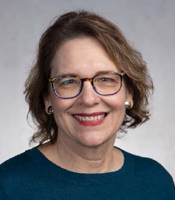
Alison A. Moore
Larry L. Hillblom Chair in Geriatric Medicine, Professor of Medicine, Chief of Division of Geriatrics, Gerontology and Palliative Care, UC San Diego
Dr. Moore is the Chief of the Division of Geriatrics, Gerontology and Palliative Care as well as the Interim Director of the Stein Institute for Research on Aging and Center for Healthy Aging, UC San Diego. She is also an officer of the American Geriatrics Society and has leadership positions in multiple National Institute on Aging-funded Centers including the San Diego Alzheimer’s Disease Resource Center for Minority Aging Research, the Research Centers Collaborative Network, and the Clinician-Scientists Transdisciplinary Aging Research Coordinating Center. Her research has primarily focused on the epidemiology of substance use in older adults and interventions targeting unhealthy substance use in older adults and diverse populations.
-
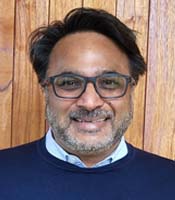
Tushar D. Patel
Vice President, US Sleep Wake Commercial and Global Strategic Marketing, Neurology Business Group, Eisai
Dr. Patel currently serves as Vice President, Neurology Business Group at Eisai. Dr. Patel is a . -
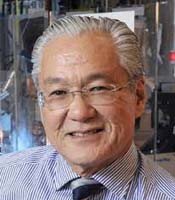
Joseph Takahashi
Loyd B. Sands Distinguished Chair in Neuroscience, University of Texas Southwestern Medical Center
The long-term goals of the Takahashi laboratory are to understand the molecular and genetic basis of circadian rhythms in mammals and to utilize forward genetic approaches in the mouse as a tool for gene discovery for complex behavior. His lab is a world leader in the identification of circadian clock genes and assignment of their function in the molecular mechanism of the circadian system.
-
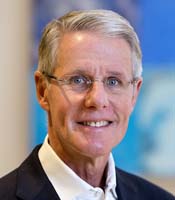
David P. White
Professor of Medicine, Part Time, Harvard Medical School. Chief Medical Officer, Alairion Pharma
Professors White’s research has addressed the pathophysiology of disorders of breathing during sleep, primarily obstructive sleep apnea. Of late this research has focused on understanding and measurement of a variety of endotypic traits that contribute to the development of this disorder and how these traits can be manipulated to treat sleep apnea. He has also, for the last 10 years, worked with a number of companies to evolve products to diagnose and treat a variety of sleep disorders.
-
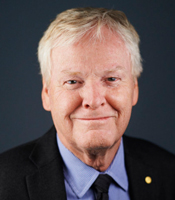
Michael Young
Vice President for Academic Affairs and Richard and Jeanne Fisher Professor in the Laboratory of Genetics, The Rockefeller University
Dr. Young a Nobel laureate in Physiology/Medicine for discoveries of molecular mechanisms controlling the circadian rhythm. Dr. Young is interested in how interactions among certain genes and their proteins set up a network of molecular oscillations that are autonomously generated in most tissues and that establish overt rhythms in physiology and behavior. His lab's findings have implications for sleep and mood disorders as well as dysfunctions related to the timing of gene activities underlying visual functions, locomotion, metabolism, learning and memory.
-

Phyllis Zee
Director of the Center for Circadian and Sleep Medicine, Benjamin and Virginia Boshes and Professor of Neurology, Northwestern University Feinberg School of Medicine
Professor Zee's research focuses on how aging alters the circadian clock system of mammals and its relationship to circadian rhythm and sleep disorders in humans. Her laboratory performs basic research with animals as well as clinical research with humans. Studies involve examination of the neurochemical events that underlie aging of the circadian clock. A variety of pharmacological approaches are used to restore the responsiveness of the circadian system to light.
